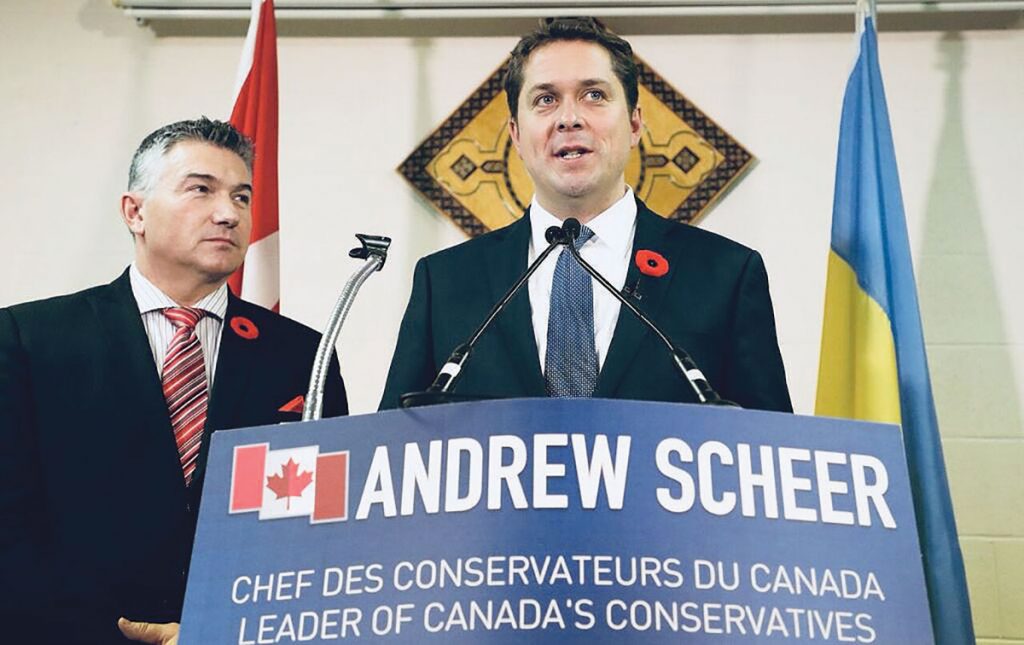OTTAWA – Canada’s Official Opposition Conservative Party has joined the Ukrainian Canadian Congress (UCC) in calling for a Canadian-led United Nations peacekeeping mission in eastern Ukraine.
“The defense of Ukraine’s sovereignty and territorial integrity should be a priority for Canada’s government on the international stage,” said Opposition Leader Andrew Scheer on November 9 when he announced that a Conservative-led Canadian government would call for such a mission that “would allow Ukraine to restore control over its eastern border with Russia” and ensure the Russian military stays out of Ukraine.

